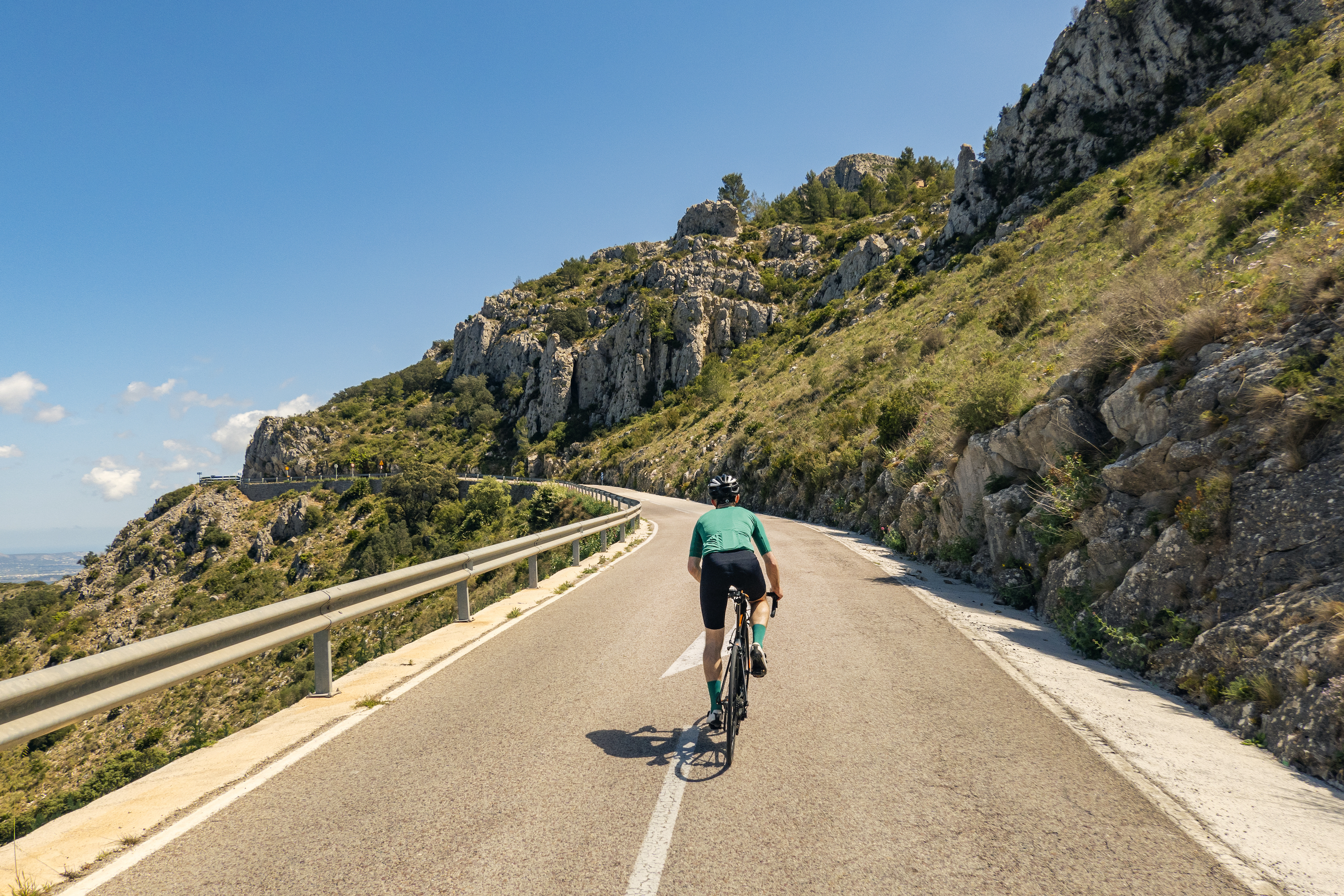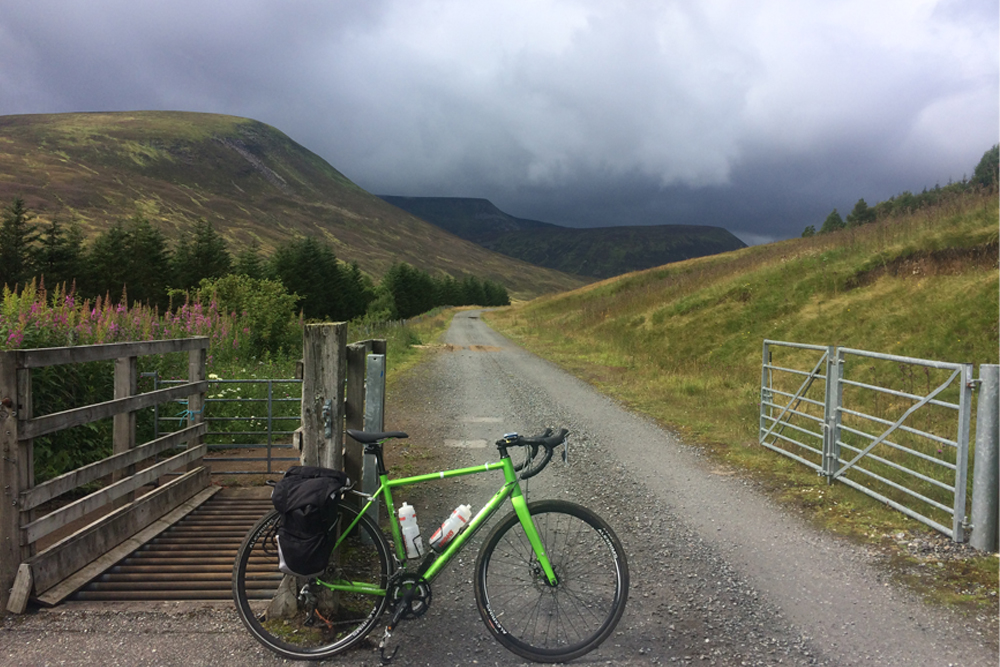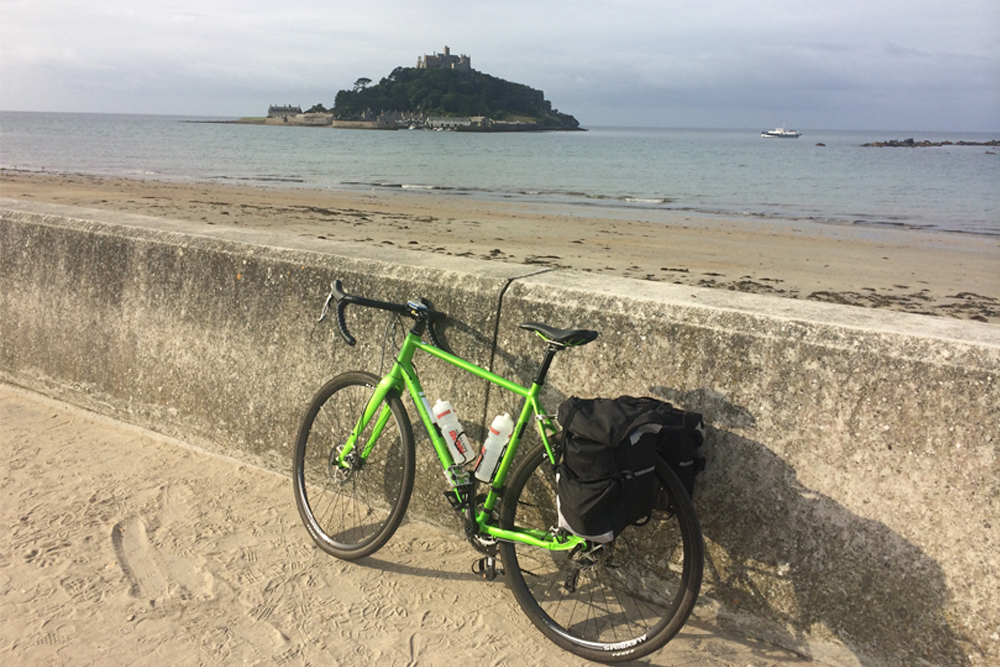Five steps to nailing the hardest ride you've ever done
James Shrubsall goes in search of coaching advice for his bucket list mega-ride attempt


The latest race content, interviews, features, reviews and expert buying guides, direct to your inbox!
You are now subscribed
Your newsletter sign-up was successful
It seems that after several years of little more than bimbling around, and with serious back issues along the way, I've found myself staring down the barrel of what might be the hardest thing I've ever done on a bike.
Unfortunately, said purposeless bimbling has delivered me to my (very) late forties with fitness levels so low you'd need mining equipment to find them. FTP? More like FGS.
I'd love to say I'd been roped into this latest challenge, but that isn't quite the case. Reality is, the good folk who organise the Babble Ride Across Britain are currently missing an arm, because when they offered me a place on the nine-day Land's End to John o' Groats epic, I bit it off and swallowed it whole.
That was a couple of months ago, and since then I've ridden less than half the distance I'll need to complete in a little over a week this September.
Riders cover 100-plus miles (or 162-plus kilometres if you prefer) on every one of the Babble 'RAB''s nine days, which range between 101 and 119 miles. There are, of course, some fairly major climbs along the way, including all day long during the initial traverse of Cornwall and Devon, as well as climbs such as Shap Fell in Cumbria, plus Glenshee and the Lecht in Scotland.
Brilliantly, everything is laid on – from feed stations to overnight camping to luggage transfer. All us riders need to do is concentrate on ignoring the pain in our legs.
It goes without saying that between now and then, there's a considerable amount of training to be completed. It will also be considerably more than I've done for a good few years, so with the help of TrainSharp coach Jon Sharples I've worked out a five-step strategy that I'm hoping will deliver me to Land's End – and then John o' Groats – in half decent shape. Sharples and TrainSharp have worked with the great and the good of road cycling, including Adam Blythe, Eddie Dunbar and Ian Bibby – they also partnered with Zwift to deliver the plans for the Zwift Academy for its first two years.
The latest race content, interviews, features, reviews and expert buying guides, direct to your inbox!
Here we go.

The Highlands beckon
1. Little and often
Consistency is king, whether training for a big event, learning a musical instrument or writing a book. Little and often wins the day – even though in this case 'little and often' will eventually become 'big and often' on the RAB itself. At this stage, stepping up the training from a couple of hours a week to four or five times that is a surefire recipe for injury. Before long, I'll have to make the major push to ride 100 miles in training (and then the major push to ride 100 miles back to back). But for now, tacking on 10% or so a week and riding as regularly as possible – I'm currently on four rides per week – is the name of the game.
Coach's view: "Consistency is the key. That's how people become decent athletes," says Sharples. "It's a year on year on year thing. Trouble is, there is more to life than cycling, especially if you've got family. Life does throw curveballs and you get stressed out – though the bike is good when you're stressed.
"You've got six and a half months, and [with consistency] you would see a big change, definitely."
2. Shed the pounds
Having tried cycling at a range of weights across a 20kg spectrum (no prizes for guessing the heaviest of those are more recent), there's no doubt for me that being at a healthy weight is going to make the Ride Across Britain a whole lot easier and more comfortable. That means that preparation for the event has already taken the form of studiously avoiding crisps and pretending that biscuits don't exist. As this is clearly not much fun, I'm hoping that the riding itself will do the job for me as the volume ramps up.
Coach's view: "Losing weight is a quick route to performance gain, but you don't want to feel you've got no energy," says Sharples. "If your muscles are empty you can feel weak and injuries can happen very quickly. You have to find what works for you and enables you to keep focused, because it is tough. Using an app, sharing with someone or using a coach makes you accountable. It's someone to keep you focused on why you're doing it."
3. Live to fight another day

But first, Cornwall
Once upon a time, my riding was about achieving a training effect. Closing the gap between FTP and VO2 max perhaps, or boosting mitochondria, or something equally exciting.
This year though, I've put the simple aim of being able to complete the next training session front and centre of my strategy. It's well known that to be a successful pro requires not only mental drive and a genetically gifted aerobic system, but the physical resilience to be able to keep training hard without breaking down.
I've had far too many run-ins with nasty colds, bad backs and whatever else to know that getting too ambitious in training can abruptly lead to days, weeks, even months off and a brisk return to square one (and also that I could never have been a pro).
Simply put, I'll be listening to my body and always erring on the side of caution.
Coach's view: "To use another analogy, treat your body like compressing a spring – just gently, gently, gently," says Sharples. "That just enables you to do more. By going too hard, you know, you might have to have a few days off to recover and that feels counterproductive."
4. Don't be a slave to the training plan
The organisers at the Babble RAB have made three different training plans available – I've chosen 'novice' level and quite honestly even that looks terrifying. As early as next month, for example, it specifies a pair of back-to-back 100-mile rides.
I have no doubt that anyone successfully completing any of these plans will have a good chance of breezing through the Ride Across Britain. Equally, getting caught up in a prescribed plan can be counter-productive, and attempting to make up the distance after having to miss a session or two due to non-cycling commitments (is there such a thing?) goes completely against the 'live to fight another day' ethos I'm aiming for. So when that happens (it already has), I'll be taking a deep breath and simply picking up where I left off.
Coach's view: "Again, life does throw curveballs, whether it's a setback, an injury or illness, or perhaps you're just not feeling it today," Sharples says. "I would say, if it's not happening today, don't beat yourself up. And don't feel like you've let yourself down. Because tomorrow is another day and we can go harder again when the time is ready.
"One piece of advice I give to pro riders who feel like this is grab your bike, take it for a walk down the garden path, throw it in the shed, and don't go back until you're ready. And it could be a week for some people. But when they do go back, they miss it, they're sorry, they're loving it, and they're back on it."
5. Make friends with cross-training
Essentially non-cycling exercise, this is the sort of stuff you've probably read about the pros indulging in during the off-season. It usually consists of activities such as running, resistance training (weights), cross-country skiing, or even mountain biking for our road-fixated professionals.
For the pros it's partly about taking the opportunity to introduce something fresh and fun, but it also plays an important role in building all-round physical strength and resilience. It's these two I'm particularly keen on. After all, muscle starts to disappear at an ever increasing rate at my age, and I'm going to need as much of it as possible during the RAB to support tired joints and other muscles. To this end I'm in the gym three times a week with core work and stretching making up a good proportion of what I do.
Coach's view: "There's nothing like riding a bike for riding a bike," Sharples says. "I definitely think people should mix it up, but there's nothing like cycling for cycling."
The gym work I'm doing, he points out, is less training than "focusing on not getting injured. You know what your weakness is, and you're supporting that chassis, that platform you're strengthening.
"But I see many people with personal trainers who aren't cyclists… and they get injured."
Aside from the points above, Sharples also suggests concentrating on sleeping well and practising, as far as possible, with nutrition for the big ride. I also ask him whether the intensity of the RAB training programme I'm following is entirely justified and he doesn't sugar coat it for me.
"You got to prepare – or prepare to fail," he says. "I do believe in that. You've got to tickle your body with what's to come. It gives you enough time to reflect, and if anything goes wrong, you're ready for it."
Taken as a whole, this plan might not work for everyone. But if you're middle-aged, unfit, could do with losing a few pounds, have at least your fair share of creaky joints and some madness has enticed you to take on your biggest physical challenge yet, you might find something in it. Good luck!
After cutting his teeth on local and national newspapers, James began at Cycling Weekly as a sub-editor in 2000 when the current office was literally all fields.
Eventually becoming chief sub-editor, in 2016 he switched to the job of full-time writer, and covers news, racing and features.
He has worked at a variety of races, from the Classics to the Giro d'Italia – and this year will be his seventh Tour de France.
A lifelong cyclist and cycling fan, James's racing days (and most of his fitness) are now behind him. But he still rides regularly, both on the road and on the gravelly stuff.
